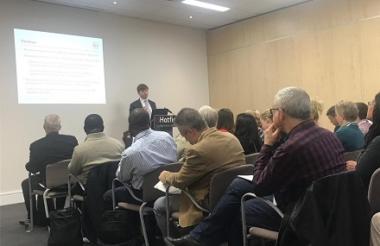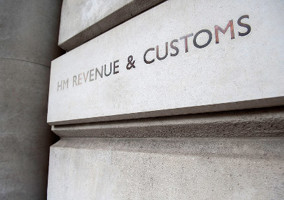Last year, charity tax experts warned of the government’s “nightmare” impending digital VAT filing requirements. Charity Tax Group chair, and head of tax at the Wellcome Trust, John Hemming said there would be a “crash landing” for charities with a turnover of more than £85,000 unable to access the software required to comply.
A year on, some progress has been made. For starters, the government granted most charities a concession, and Brexit metaphor, by delaying their mandatory compliance date from 1 April to 1 October 2019. HM Revenue & Customs has also reassured charities that there will be a soft-landing period for the first 12 months (until October 2020 for most charities) whereby they will be allowed to “cut and paste” the figures they need to file, without having to use “digital links”. In the long-term, however, charities will have to use these links which connect the figures submitted to other software programmes.
In the past year, accountancy firms have got their act in gear by developing the software charities need to comply, for the first year at least, some of which offer the service for free. The government now lists more than 80 providers on its website.
Earlier this month, HMRC offered the sector another compromise by easing requirements for charities that run fundraising events. The regulator recognised the difficulties charities could have in keeping strict digital records at events run by volunteers, so will now allow them to record all the event’s supplies “as if it were a single invoice”.
Hidden costs
Charities tax experts have responded positively to these adjustments to the legislation, with Hemming saying the events-related concession should make compliance “less onerous” for charities. Software providers have even begun to encourage charities to see the legislation as an “opportunity”, rather than a burden.
But at Civil Society Media’s Making Tax Digital event this week, many charities in attendance were still deeply concerned over the requirements.
One audience member said, to murmurs of agreement, that her charity’s elderly volunteers would not be able to file things such as their expenses digitally, preferring to submit hand-written records. The optimistic advice offered by accountancy firm Raffingers’ partner Mehul Thaker was that charities could either train their tech-unsavvy volunteers or “work around them” by having someone else file the expenses digitally on their behalf.
This hidden cost of training workers to comply with the legislation was raised a few times at the event, with the point made that charities could find this particularly difficult considering the reliance many have on volunteers.
We will soon get an indication of whether the legislation will be the “nightmare” some predicted for charities, or “an opportunity” pitched by others. Charities will have to comply for their tax periods beginning in October, with some of these being submitted as early as January 2020. CTG is still locked in discussions with HMRC, pushing for further concessions on particularly difficult taxes to file such as reverse charges. Whether or not this comes to fruition, those charities concerned after the requirements should take some comfort in the approach from the regulator.
HMRC’s engagement manager Verna Gellvear said at the event that the regulator would not be handing out penalties to organisations that are “making an effort to comply”. However, she said HMRC would do so for organisations making no effort to comply or filing incorrect numbers. Gellvear also admitted that with limited resources HMRC would not be aware of where most organisations were complying or not, so it is likely that many non-compliers will fall under the radar.
The upcoming VAT requirements are not the full story for Making Tax Digital, with the government intending to extend the legislation to cover corporation and income tax in future. However, Gellvear assured charities that they will not be doing this until 2021 at the earliest. And with the current government’s tendency to delay, and ongoing preoccupation with other things, charities may only need to concern themselves with the VAT requirements for the foreseeable future.
|
Related articles












